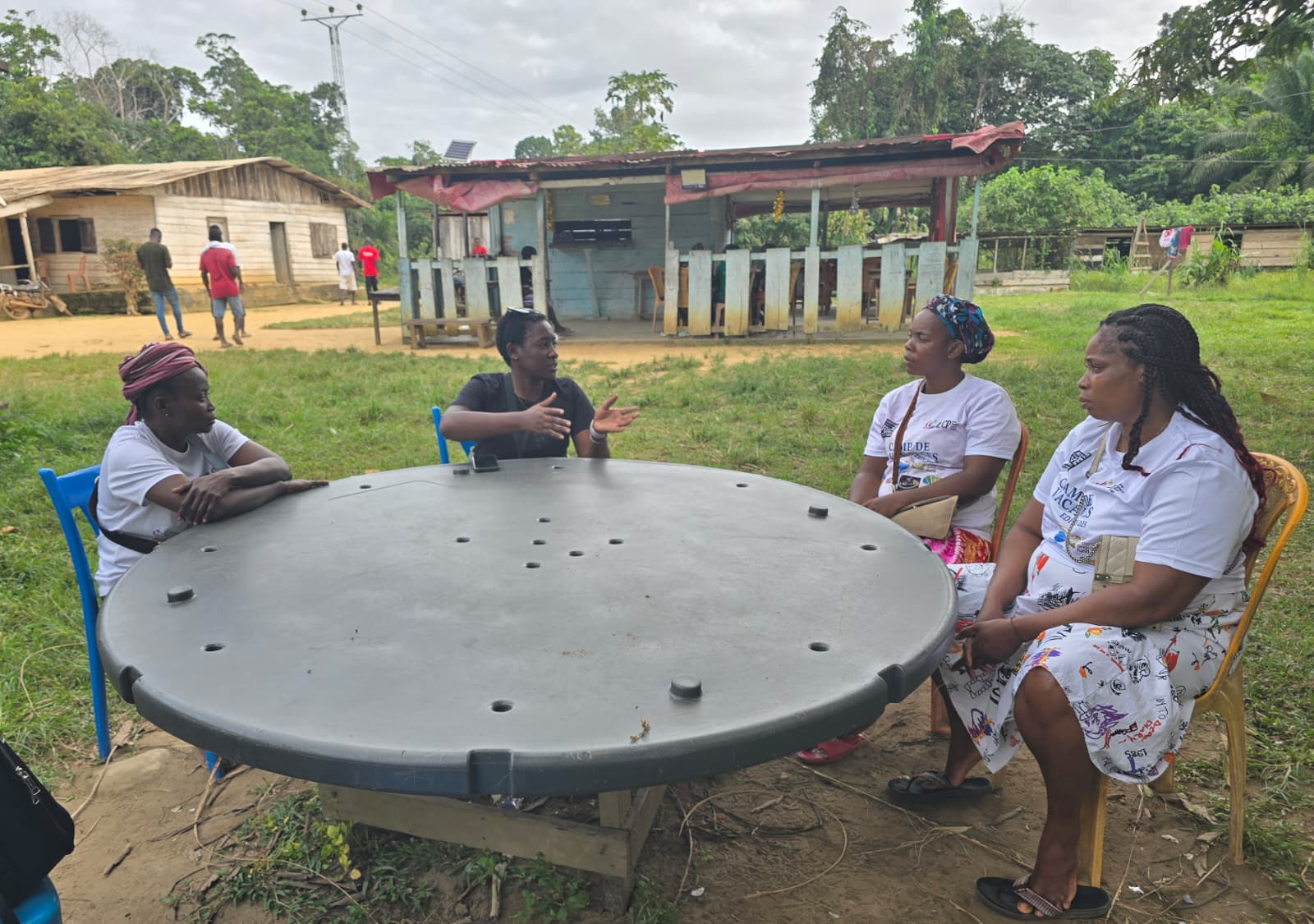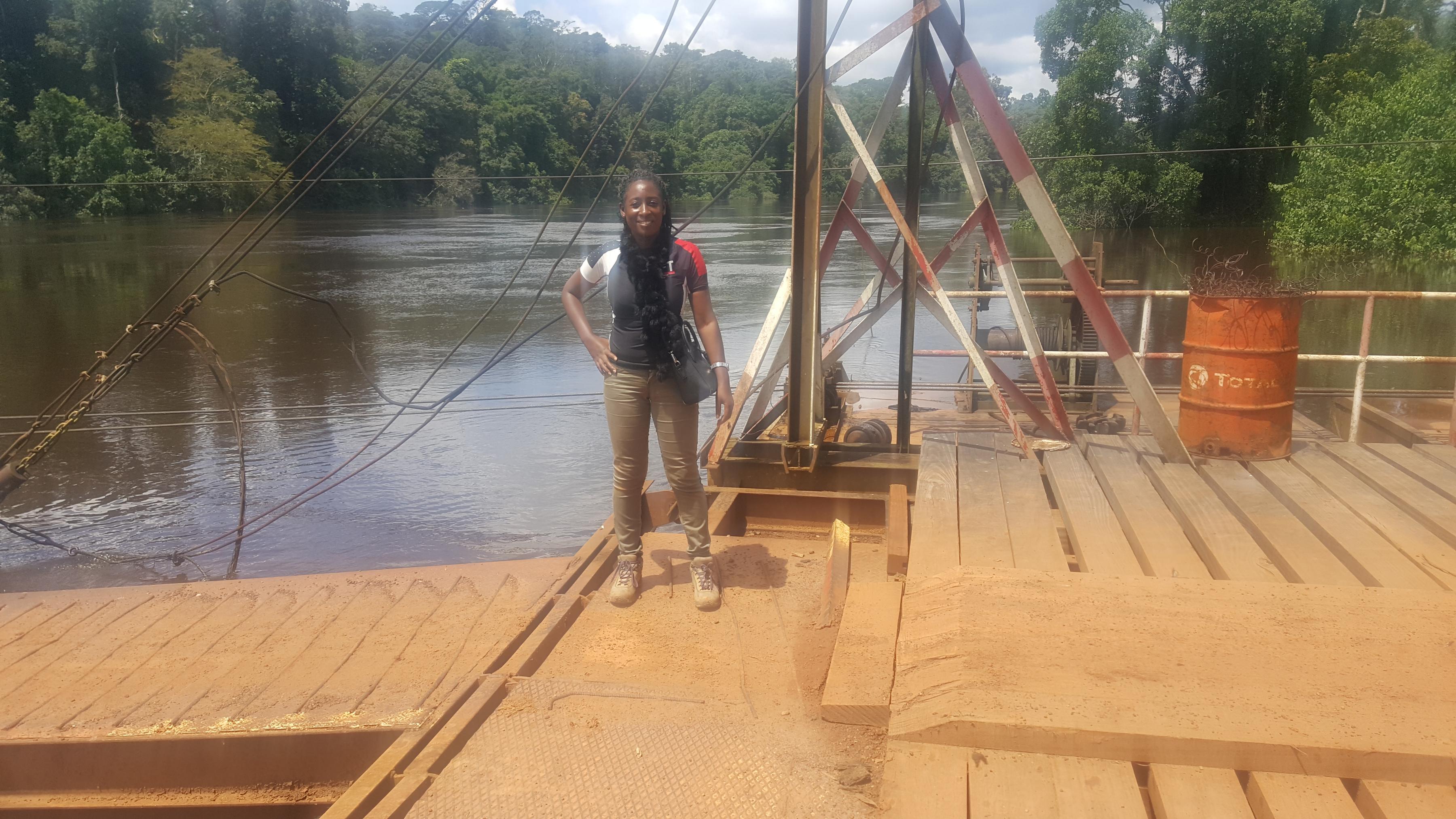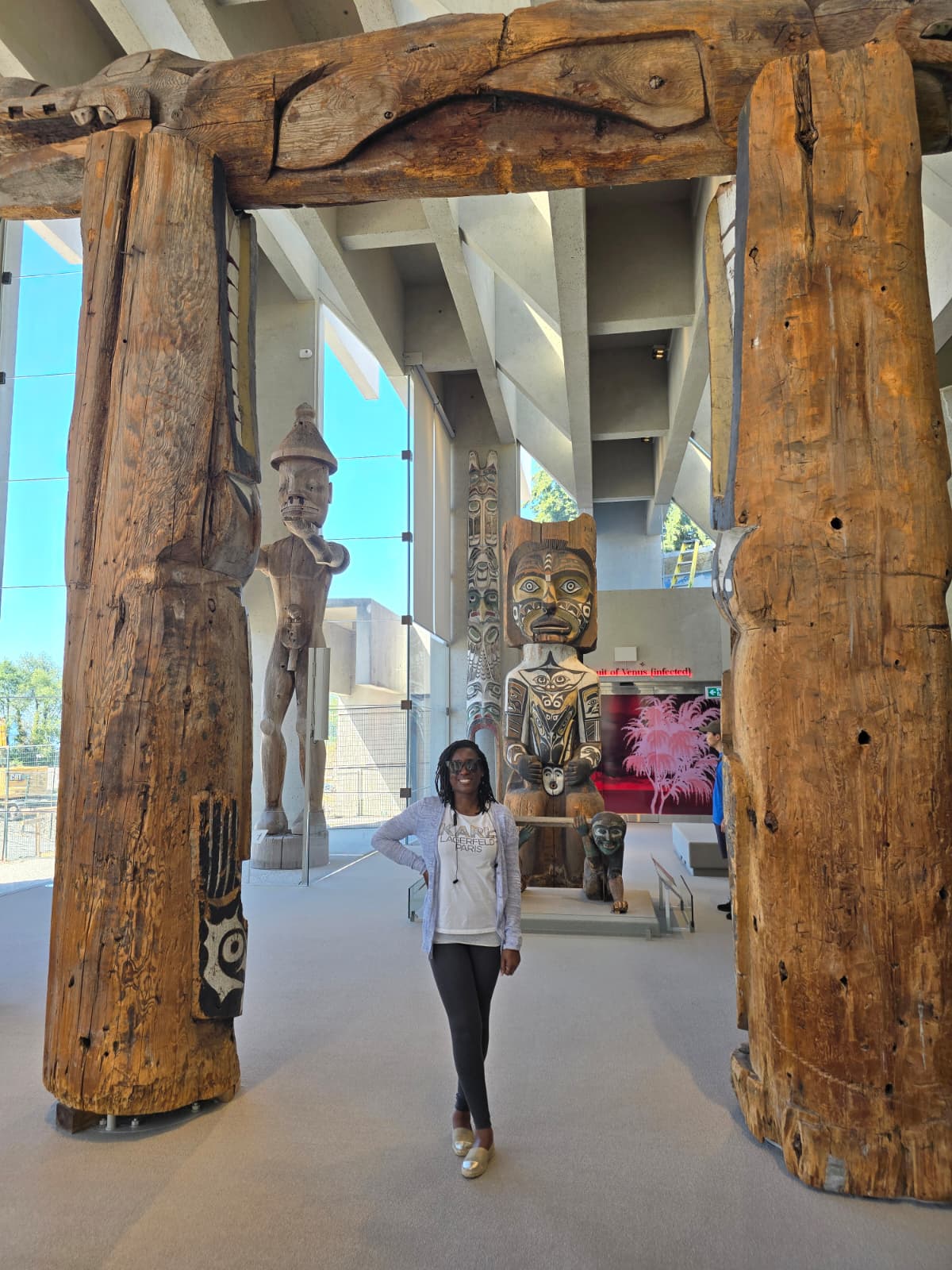Fideline Awasiri Mboringong
Being a Public Scholar means transforming research into tools that communities and decision-makers can actually use. It is about making knowledge inclusive and accessible, and ensuring that research creates tangible benefits beyond academia. In my work on mining governance in Cameroon, this means co-developing practical frameworks with communities, government and industry so decisions reflect diverse values and are more transparent and just. For me, public scholarship is not an “add-on” — it is the heart of research that inspires change and strengthens society.
Research description
What does being a Public Scholar mean?
To me, being a Public Scholar means transforming research into tools that communities and decision-makers can actually use. It is about making knowledge inclusive and accessible, and ensuring that research creates tangible benefits beyond academia. In my work on mining governance in Cameroon, this means co-developing practical frameworks with communities, government and industry so decisions reflect diverse values and are more transparent and just. For me, public scholarship is not an “add-on” — it is the heart of research that inspires change and strengthens society.
In what ways do you think the PhD experience can be re-imagined with this Initiative?
Through the Public Scholars Initiative, I see the PhD as more than an academic exercise — it becomes a platform to co-create knowledge with the people and institutions most affected by the issues I study. In my case, this means working alongside communities, policymakers and companies in Cameroon’s forest landscapes to address the governance of mining and infrastructure in ways that are both socially just and environmentally sustainable. The PSI re-imagines the PhD by valuing research outputs that have real-world impact, policy briefs, community engagement tools and frameworks that can guide responsible investment, not just peer-reviewed publications. It encourages us to bridge science, policy and practice, and to see public engagement not as an add-on, but as a core part of scholarly work. For me, it’s an opportunity to grow not only as a researcher but also as a facilitator of dialogue, a connector of perspectives and an advocate for solutions grounded in both evidence and lived experience.
How do you envision connecting your PhD work with broader career possibilities?
My PhD examines how mining and infrastructure governance in Cameroon can advance environmental justice, Indigenous rights and sustainable development. This work gives me practical expertise in stakeholder engagement, policy analysis and cross-sector collaboration, skills that are directly transferable to roles in international NGOs, intergovernmental bodies or sustainability units in industry. Building on my experience at WWF, where I bridge community voices with corporate and policy dialogues, I aim to shape standards for responsible investment, inform land-use and mining policies, and strengthen institutional capacities across Africa. In the long term, I see myself working at the interface of science, policy and practice to ensure that resource development benefits both people and nature.
How does your research engage with the larger community and social partners?
My research is grounded in participatory engagement with communities, civil society organisations, government agencies and industry actors in Cameroon. Fieldwork is conducted in collaboration with local partners, ensuring that Indigenous and community perspectives inform both the research design and the interpretation of findings. Through my role at WWF Cameroon, I work closely with private sector, smallholder associations and conservation stakeholders, which has strengthened my ability to build trust, facilitate dialogue and integrate diverse viewpoints. These relationships also create pathways for my research to directly inform policy reform processes, sustainability standards and corporate practice. I plan to actively share findings through stakeholder workshops, policy briefs and collaborative platforms, ensuring that the knowledge generated is accessible, relevant and applicable to those who can act on it. This two-way exchange allows my work to remain responsive to real-world challenges while contributing to evidence-based solutions that benefit both communities and the environment.
Why did you decide to pursue a graduate degree?
While working in conservation in Central Africa, I saw how policy decisions about mining and land use were often made without fully considering the voices of local communities. This gap convinced me that to influence systems effectively, I needed stronger research skills and a deeper theoretical grounding. Pursuing a graduate degree gives me the tools to rigorously investigate these complex challenges, collaborate with experts across disciplines and translate evidence into practice. For me, it is not only an academic pursuit but an investment in becoming a more effective leader and partner in driving sustainable and equitable change.
Why did you choose to come to British Columbia and study at UBC?
I chose UBC because it is one of the few institutions where sustainability research is deeply connected to both community needs and policy impact. Its Faculty of Forestry is a leader in resource governance, Indigenous rights and biodiversity conservation — exactly the fields I work in. I was also drawn to supervisors whose experience in the Congo Basin aligns directly with my own. Their knowledge and networks create a unique environment where I can both learn from world-class mentors and contribute my own field experience to advance more just and sustainable approaches to resource governance







